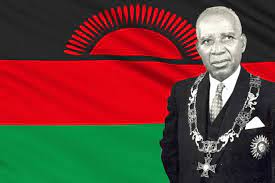Nigerian Laws Are Not Effectively Used Against Sexual Violence By Hammed J. Sulaiman
The Inspector-General of Police, Mohammed Adamu, recently revealed that the Nigerian Police Force recorded 717 rape cases between January and May 2020. This means that while the world was busy battling with a pandemic, rapists in Nigeria were busy taking advantage of the lockdown.
Nigeria boasts of numerous laws against rape and sex-related offenses: At least five legal provisions are available in Nigeria to protect rape victims and help them get justice: The Criminal Code, Penal Code, Criminal Laws of Lagos, Violence Against Persons Prohibition Act, and the Child Rights Act. However, evidence shows that it lacks the will to enforce them. Some of these laws are even yet to be domesticated at the state level where their implementation could be properly monitored.
A 2019 survey published by NOIPolls stated that about one in every three girls living in Nigeria has experienced at least a form of sexual assault at 25. The rising number of rape cases, however, is not complementary to the number of rapists in jail. The wheel of justice in Nigeria, particularly as regards sexual violence, is really slow. The laws live only on paper. Most of the few cases of sexual violence that got justice did with the support of one non-governmental organizations.
More so, many Nigerians see rape and sexual assaults as an avenue for trading blames and raising discourse about dressing and morality, making it difficult for victims to speak out about their ordeals. The stigmatization at police stations makes reporting rape cases even more difficult.
Enforcement of existing legislations is the first step that must be taken towards curbing sexual violence in Nigeria.
Also, some of the laws need to be updated as they are archaic. For example, the age limits should be reviewed in Criminal Code (i.e section 30) as this modern world has shown that a boy under the age of 12 years can possess the knowledge of carnal knowledge with lewd and sexual materials available everywhere.
Lawmakers should enact laws mandating sex education in Nigerian educational curriculum in order enlighten young people about sexual violence. Civil societies should continue to ensure that victims of sexual assaults get justice.
Hammed J. Sulaiman is a Writing Fellow at African Liberty and a student of law at Usmanu Danfodiyo University, Sokoto. He tweets via: @sulexmighty_sbm





